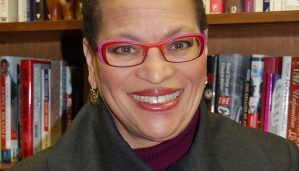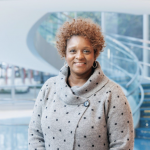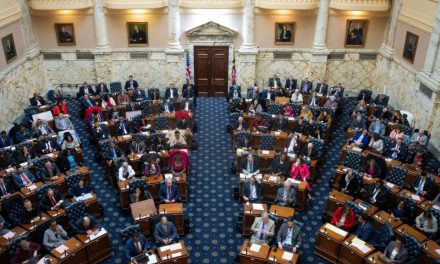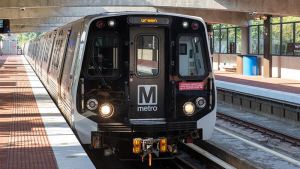
By Maya Pottinger
The Omicron variant of the coronavirus has hit society like a ton of bricks this winter and HBCUs are no exception.
Howard University pushed back the start of the Spring 2022 semester by more than a week, hoping to combat the uptick in on-campus cases following the holiday season. And they were not alone.
Elizabeth City State University in North Carolina, Jarvis Christian College in Texas and LeMoyne-Owen College in Tennessee all delayed the start of the Spring 2022 semester to hamper the spread of the coronavirus from host to host.
Many HBCUs had already made it mandatory for students to get vaccinated against COVID-19, but the Omicron coronavirus wave forced these institutions to ramp up safety precautions to ensure the health of students, faculty and community members.
“Given the recent surges in positive COVID cases, the prevalence of new variants and an uptick in hospitalizations, we recognize that our collective success aligns with our capacity to limit the spread of the virus and safeguard our community as best we can,” said Morgan State University (MSU) President David Wilson in a letter to the community. “This means that in addition to continuing the health safety measures that were already put into place for the fall, there will be added protections for the spring.”
MSU students were already expected to be fully vaccinated for COVID-19, but protocols now call for students, faculty and staff to present a negative COVID test prior to arrival on campus. Students living on campus must submit a negative test taken within 24-72 hours of arrival before gaining access to dorm facilities.
Wilson is also requiring all persons who are not fully vaccinated to submit to testing twice a week and masks must be worn in all indoor campus facilities. A phone-based app, GatherSmart, has also streamlined daily COVID screening with a virtual questionnaire.
Three of Maryland’s four HBCUs fall under the University System of Maryland (USM), which is not only mandating a basic vaccination- but the booster shot too for residential students. Coppin State University, University of Maryland- Eastern Shore and Bowie State University are all mandating a full vaccination regime with a booster for all students living on campus.
Higher education officials are hoping all of the measures together will loosen the virus’ grip on a student body disproportionately affected by the pandemic.
Some historically Black colleges and universities have done better than others.
The Atlanta University Center institutions have been able to keep their COVID rates lower than many other universities in the state of Georgia.
The Atlanta University Center Consortium’s online dashboard said its four schools administered more than 64,000 COVID-19 tests in the fall semester. Those tests resulted in 270 positive results for a 0.4% positive rate.
HBCUs are an interesting focal point when it comes to the pandemic because of the likelihood of spread on college campuses coupled with a historical distrust of vaccines in the Black community.
It’ll be fascinating to see how HBCUs navigate the pandemic with their students moving forward, especially amid the need for additional booster shots and the expectation of additional new variants popping up periodically.
Howard University said it was giving out booster shots on campus on Tuesday and Thursday in its nearby hospital.
“Breakthrough cases of COVID-19 will continue to occur. We know that individuals who have received a booster shot of mRNA vaccines (Pfizer and Moderna) have significantly more antibodies in their system than individuals who have not yet received booster shots and even more than those who are unvaccinated,” Howard University officials wrote late last month in a letter to their community. “The bottom line is that you are more protected if you are vaccinated.”
All students, faculty, and staff for the University who are eligible will be required to get boosted by January 31. The school said that its 19% positivity rate is the highest since the pandemic started for the school.
“At that rate, we would not have enough beds to quarantine positive students living in the residence halls, if students returned on the originally scheduled start date for the spring semester,” school officials added in the letter. “Our highest priority is the health and safety of our students, faculty, and staff… As we continue to navigate the pandemic, we are leveraging our collective knowledge and experience to adapt our community to the many changes in the virus and the pandemic.”
According to the Atlanta Journal-Constitution, Morehouse School of Medicine President Dr. Valerie Montgomery Rice said during a town hall meeting in September that if the proper precautions are taken, then the institution can provide a place where students can excel and stay healthy.
“If we can mask, if we can do appropriate distancing, if we can become vaccinated, then we can create a safe environment for learning and working and contributing to the science,” Rice said.Alexis Taylor (ataylor@afro.com) contributed to this article.
The post #WordinBlack: HBCUs Responses To The Omicron Variant appeared first on AFRO American Newspapers .











